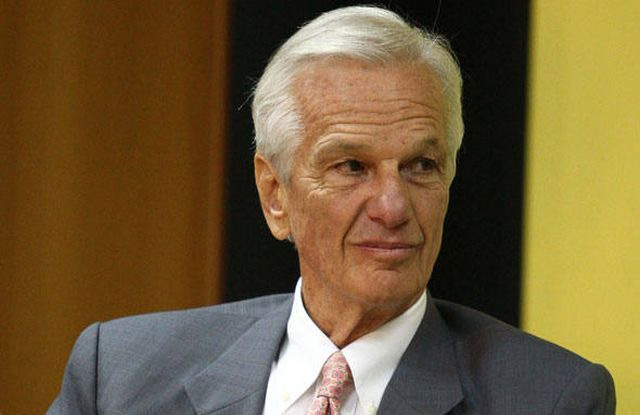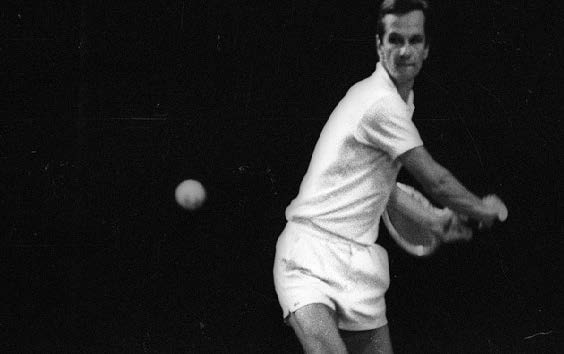



He is Brazil's richest citizen, with a fortune estimated at upwards of $24 billion. He has been described by Bloomberg Business as "the world's most interesting billionaire." But perhaps the most impressive distinction to which Jorge Paulo Lemann can lay claim is that he has won the enduring confidence of no less a businessman than Warren Buffett. Lemann, says Buffett, is "a great professor" when it comes to learning about Brazil, and he has pronounced the 75-year-old Swiss-Brazilian mogul "classy."
In 2013, Buffett joined Lemann in acquiring H.J. Heinz Company for a reported $27 billion. The purchase gave Lemann and his partners a controlling interest in what were three quintessentially American companies--Heinz, Burger King (now part of Canada's Tim Horton) and Anheuser-Busch.
Still, Lemann is virtually unknown in the U.S. Compare that with the flamboyant Eike Batista, who only a couple of years ago--before he lost a fortune in natural resources--was offering Lemann competition for the title of the richest man in Brazil. The two men are also polar opposites when it comes to philanthropy.
Look online for “Batista” and “philanthropy” and you’ll likely be bombarded with stories about wild, singular, and unfulfilled multimillion dollar donations promised to Madonna’s short-lived children’s charity or a high profile gift to the Rio 2016 Olympic Games bid campaign. Lemann’s 20-plus year education foundation “supporting young people with the potential to be leaders” is far less flashy or publicly lauded, but it’s consistent.
Lemann has long preached the importance of education and the necessity for Brazil to address its shortcomings in the area. He has often dismissed the country's inflation and national debt problems as “anytime” fixes compared with the “long-term” and measured approach required of education reform.
For many established businessmen and women in Brazil, the memories of military dictatorship, rampant inflation, and long crashes occasionally followed by short booms are still fresh wounds. Lemann’s response has been a sort of privately funded meritocracy. Students of all backgrounds, races, colors, and creeds have secured Lemann scholarships. The only common denominator is the quality of brainpower. Only those who have the potential to drive Brazil forward need apply. In return, they will receive some of the best education the world has to offer. More than 10,000 students annually chase the 30 to 40 Lemann scholarships. Lemann also funds fellowships that allow students at Oxford, Columbia University and UCLA to study in Brazil.
Lemann’s faith in education is almost exclusively thanks to his years at Harvard. The now ruthless businessman has regularly admitted that he only got into the exclusive university thanks to the strength of his backhand. Tennis and surfing were his central concerns when he arrived in the U.S. Although he subsequently pursued a successful professional tennis career—Lemann was a five-time Brazilian national champion, played at Wimbledon, and represented both Brazil and Switzerland in the Davis Cup—Harvard changed everything.
 Lemann was a five-time Brazilian national tennis champion before becoming Brazil’s richest man.
Lemann was a five-time Brazilian national tennis champion before becoming Brazil’s richest man.The impact was so significant that three years ago, Lemann ended a speech to Fundacao Estudar, his own education foundation, by offering his help “to anyone, one way or another, who was accepted to Harvard.” An ambitious offer, even from the world’s 33rd richest man.
It wasn’t just rhetoric. Lemann currently supports a wealth of activities at his alma mater, including the Brazilian studies programme, the Brazilian office for David Rockefeller’s Centre for Latin American Studies, the Lemann Visiting Scholars Programme and the Lemann Fellows Programme at the Harvard School of Education and of Public Health, and at the John F Kennedy School of Government and the Graduate School of Arts & Sciences.
It’s not just Harvard he’s focused on. With a $16.5 million Lemann Institute for Brazilian Studies, the University of Illinois benefitted from Lemann’s connection to its Professor of Economics, Werner Baer, also a respected South American scholar.
Barring this type of occasional donation, Lemann’s largesse isn't huge. To date, Fundacao Estudar has supported around 500 students at the relatively reasonable cost of $9 million. With its narrow focus, it would be hard to argue that the program makes waves or has a huge societal impact. Lemann is equally tight-fisted in business, famous for paring costs and demanding more from his companies.
There’s little indication that Lemann will suddenly become a career philanthropist and, despite his friendship with Buffett, it seems to be even unlikelier that he will sign the Giving Pledge. That's not his style. And that's okay with Buffett, who has called Lemann “[his] kind of partner.” No doubt Brazil’s brightest youth are saying the same thing.